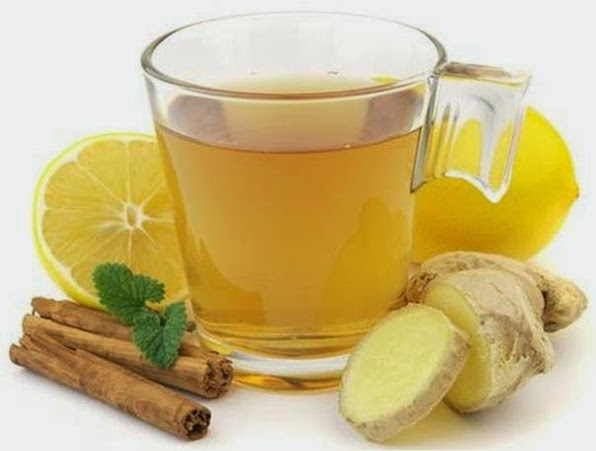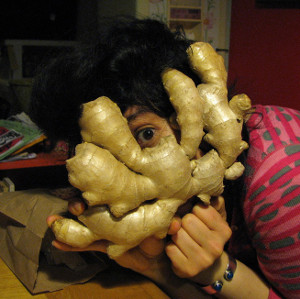We’ve known for a long time that Ginger has many beneficial qualities, not all of which have been proven scientifically. But researchers at the Technical University of Munich have succeeded in tracking down the mechanism by which Ginger attacks chemical compounds in saliva that cause bad breath…
 Ginger Tea: Perhaps the easiest, tastiest and most civilized way to get your
Ginger Tea: Perhaps the easiest, tastiest and most civilized way to get your
Ginger every day. Lemon, Cinnamon, Nutmeg and Cloves
are natural flavour buddies for Ginger.
The list of Ginger’s beneficial effects is long, and sometimes stretches the imagination a little. Here, according to webmd.com, is an exhaustive account:
Ginger is commonly used to treat various types of “stomach problems,” including motion sickness, morning sickness, colic, upset stomach, gas, diarrhea, irritable bowel syndrome (IBS), nausea, nausea caused by cancer treatment, nausea caused by HIV/AIDS treatment, nausea and vomiting after surgery, as well as loss of appetite.
Other uses include pain relief from rheumatoid arthritis (RA), osteoarthritis, menstrual pain, upper respiratory tract infections, cough, respiratory problems, migraine headache, bronchitis, and diabetes. Ginger is also sometimes used for chest pain, low back pain, and stomach pain, discontinuing use of drugs called selective serotonin reuptake inhibitors (SSRIs), anorexia, to stimulate breast milk, as a diuretic, and to increase sweating. It is also used to treat cholera, bleeding, bacterial bloody diarrhea, baldness, malaria, inflamed testicles, poisonous snake bites, and toothaches.
According to its fans, Ginger can do almost anything except regrow hair. But, today, we’re going to focus in on an application for Ginger that many of us can vouch for from personal experience: curing bad breath.
How it works…
When you place Ginger in your mouth and your saliva stars to mix with it, a powerful enzyme always present in small amounts in your mouth increases its presence as much as sixteen-fold and attacks noxious compounds that cause bad breath and bad taste.
The enzyme, sulfhydryl oxidase 1, breaks down malodorous sulfur-containing compounds. In this way, it is able to reduce the long-lasting aftertaste of many foods such as coffee.
Prof. Thomas Hofmann, who headed the study, says the mechanism his team discovered could contribute to the future development of new oral hygiene products.
My take…
You can already get a wide variety of Ginger products at your favourite Dietary Supplements outlet. But I foresee a whole raft of new Ginger-based consumer products: Breath Mints, Mouth Washes, Tooth Pastes, Chewing Gums… Whatever the marketing gurus can come up with to sell us. But we don’t need any of them. Just go to the supermarket and pick up some fresh Ginger Root. It doesn’t get any more potent that that!
~ Maggie J.

